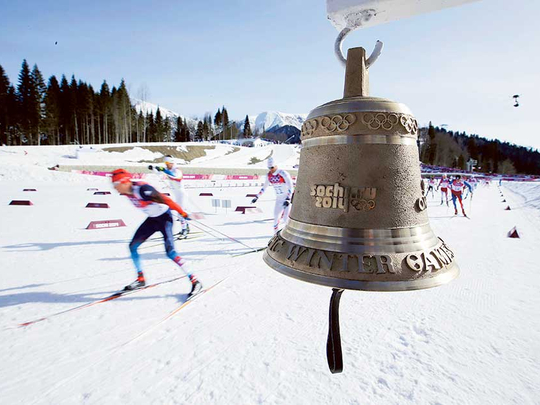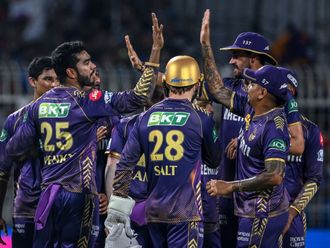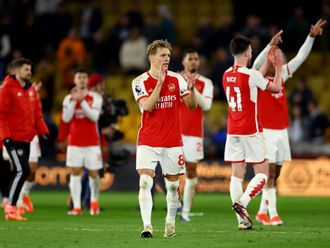
Moscow: Russia on Wednesday blasted a report in The New York Times that officials have acknowledged a massive sports doping conspiracy, reiterating claims there was no government involvement.
The New York Times reported on Tuesday that the acting director-general of Russia’s scandal-mired national anti-doping agency had “for the first time” conceded officials conducted the programme to cheat.
“It was an institutional conspiracy,” Anna Antseliovich, was reported as telling the US newspaper in an article datelined from Moscow.
Antseliovich and others interviewed continued to reject the characterisation of the doping scheme as “state-sponsored,” telling the Times that top government officials were not involved.
But Moscow later slammed the article, with anti-doping agency RUSADA insisting that Antseliovich’s words were “distorted and taken out of context”.
The New York Times reporter “took these words out of context, creating the impression that RUSADA’s leadership had admitted to an institutional system of a doping cover-up in Russia,” the agency said in a statement.
“We want to underline that RUSADA does not and cannot have the authority to admit or deny such facts,” it said.
Investigator Richard McLaren said in a new report for the World Anti-Doping Agency (WADA) this month that more than 1,000 Russian athletes in some 30 sports took part in a plan for Moscow sports ministry officials to use banned drugs at the 2014 Sochi Winter Olympics, the 2012 London Summer Games and other global events.
Russia has admitted that it had a problem with doping but insists that there is no proof there was a state-orchestrated programme to cheat, a dogged denial that critics say means Moscow will never tackle the issue.
The Kremlin repeated earlier rejections of allegations of state involvement in doping, while also casting doubt on the latest report in The New York Times.
“From the very beginning we have denied any involvement by the state or state institutions or services or agencies in the possible use of doping by sportsmen,” Kremlin spokesman Dmitry Peskov told journalists.
‘Shocked by revelations’
The accusations by McLaren in his last report were another body blow to Russian sport, which was still trying to shrug off the damage from his initial findings and the exclusion of its track and field athletes from international competitions.
The affair reverberated through the 2016 Rio Olympics and has continued to be felt as winter sports events such as next year’s bobsleigh and skeleton world championships and biathlon and speed skating World Cup stops have been withdrawn from the country.
McLaren, a Canadian lawyer, issued his first report in July, detailing an elaborate scheme to manipulate drug tests at the 2014 Sochi Games and saying it involved the Russian sports ministry and FSB security service.
“Ms Antseliovich, who has not been directly implicated in the investigations, said she was shocked by the revelations,” the Times wrote. “She and others emphasised that the government’s top officials were not involved.”
And Vitaly Smirnov, the 81-year-old veteran sports official drafted this year by Russian president Vladimir Putin to oversee reforms, was less than conciliatory in his comments to the newspaper.
“From my point of view, as a former minister of sport, president of Olympic committee — we made a lot of mistakes,” the Times quoted Smirnov as saying.
But he also referred to the revelations of therapeutic use exemptions (TUE) that allowed some high-profile Western athletes in an array of sports to use banned drugs — which came out via documents hacked by the “Fancy Bear” group.
Smirnov indicated he believed the documents showed Western competitors received favourable treatment from global anti-doping authorities.
“Russia never had the opportunities that were given to other countries,” he told the newspaper. “The general feeling in Russia is that we didn’t have a chance.”












